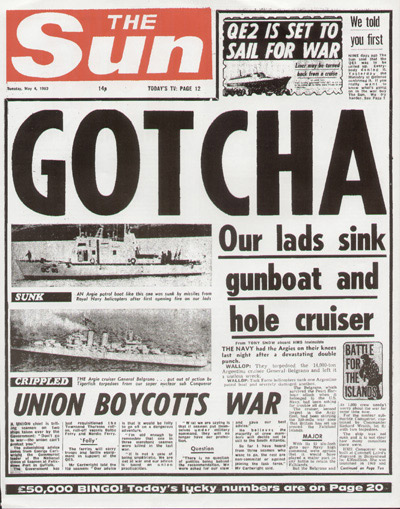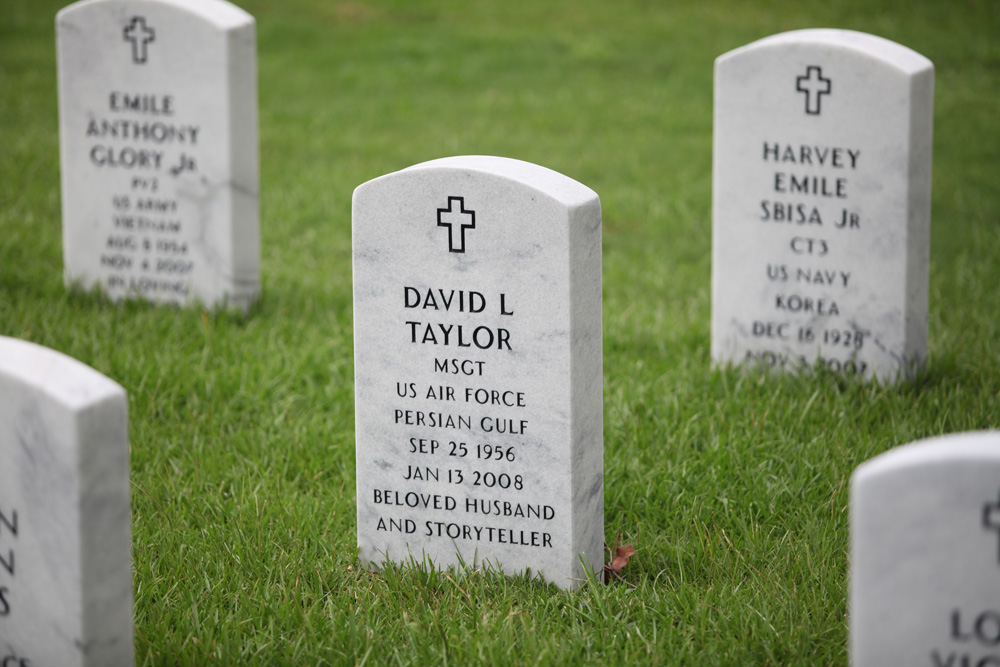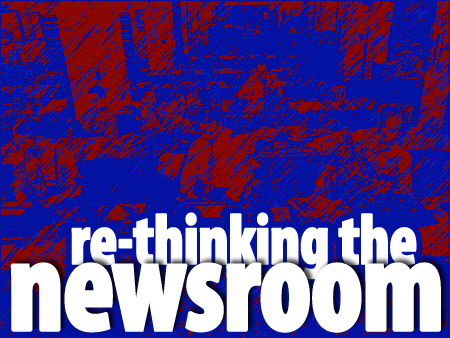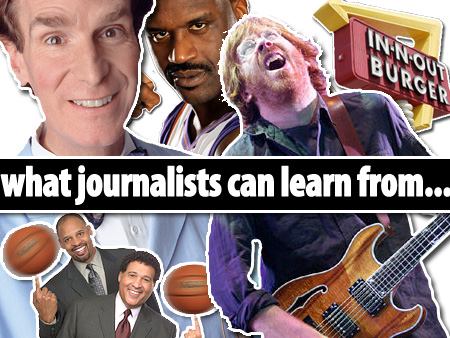 What does a newsroom look like?
What does a newsroom look like?
The thing that’s probably coming to mind is something out of “All the President’s Men”: a large room, with long rows of cubicles stretching out into the distance.
Which is a fine thought — a normal thought, really — because most newsrooms still look like that.
Except for one thing: news has changed; the newsroom should, too.
A modern newsroom needs to reflect modern-day news needs, which means less hierarchy and more collaboration.
So what should a newsroom look like in 2010? The answer might be found up in the air.
❡❡❡
News organizations used to operate in a linear fashion. The news process began at a set point (assignment desk, morning meeting), proceeded along to second (or a third, or a fourth) point (reporter, photographer), and ended up at a final set point (editor). News moved along a pre-determined assembly line, and the system worked fine.
But today’s newsrooms need to be designed to get news as efficiently as possible to its true final destination: the consumer. So what better example to show us the way than the most destination-centric industry on the planet: the airline industry.
Most airlines use something called the hub-and-spoke system, and if you’ve ever flipped to the back of an in-flight magazine, you already know what I’m talking about. Airlines set up hubs — United, for example, has hubs in Washington, D.C., Chicago, Denver and San Francisco — and the majority of their passengers move through those hubs.
The rationale is simple. Just within North America, an airline like United serves customers in hundreds of cities, from Albuquerque to Honolulu to Sioux Falls. Those customers are going to infinite destinations, and it’d be impossible for United to efficiently serve all of those customers with direct flights.
So what the hub-and-spoke system offers is a promise: United will get you from one point to the other, and in the majority of cases, they’ll be able to do it in just a single stop.
They’re able to do it because they centralize most of their operations out of just a few airports, and from there, they reach out across the country to all of those other destinations. So for even the most unusual of routes — say, Sioux Falls to Honolulu — the only thing a traveler needs to do is make a pit stop in Denver.
That’s the beauty of hub and spoke: it’s a simple connection for people in seemingly unconnected places.
The application for a newsroom is easy to see. At the heart of your newsroom, you need to have the heart of your news operation. So decide: what’s most important to you and your readers?
Whatever it is, make sure the people who control it are right in the center of your newsroom. And I mean it in a literal way: you need to redesign your newsroom so that at the very center of the room is the thing that’s most important to you. If you’re going to prove to your staff that you’re rethinking the newsroom, you need to show your staff that this one thing — say, breaking news — is the most important part of your operation, and that it’s the thing that drives the news operation. Be efficient, and put it right at your center.
So build your breaking news desk, or an assignment desk, or a hub filled with top editors. Now that you’ve got your hub[1. If you’re a daily paper or a TV station, it might be just a single hub; if you’re CNN, you’ll require a few hubs.], it’s time to start building the spokes.
When it comes to news, any member of your staff can play a role. If a member of your sports staff goes driving past the scene of breaking news, he/she might suddenly be sending back quotes or live video, even though it’s not what that reporter would write about on a W-2.
Under the old point-to-point system, that sports reporter wouldn’t have the leeway to do such a thing. But in a newsroom that collaborates, he/she will. So make it easy to share that information. By designating the hub, the reporter will know immediately who to get in touch with and how to share that information. The hub can connect that reporter to the people he/she needs — the producers, editors, the photographers — who can help.
And all along, you’ve got your hub, directing traffic and keeping the story moving forward by making sure that information is moving smoothly from spoke to spoke.
❡❡❡

Here’s the other thing to love about the hub-and-spoke system: it allows for teamwork among staff who otherwise wouldn’t get the chance to work together. If you’re a smart news organization, then you’ve already hired talented people. But give them a chance to work outside their department, and you’ll give them the chance to spark some incredible ideas and projects.
In newsrooms in Brazil, the U.K. and the Netherlands, newsroom re-design is already having an impact on the newsroom culture.
But this redesign can’t just be about the hubs. The design of the spokes needs to be re-thought, too.
I’m talking about building with inspiration and collaboration in mind. So consider this:
Get rid of cubicles.
There’s precedent for this in the modern highway system. Engineers will design a highway to handle a certain number of cars per hour. But what happens when a city’s growth far exceeds what the engineers predicted?
There are just two options:
1. Do nothing, because doing something might make the problem worse in the short term.
2. Tear it down and build something better for the long term.
The second option shouldn’t seem so radical. There’s a known problem, and there are ideas for how to fix it. But out of fear of inconvenience, we often try to work around it, which just makes the problem worse.
Only a handful of cities have been willing to tear down a bad highway and start again. In the end, they’ve succeeded, because they’ve been willing to deal with the short-term effects to ultimately deliver a better driving experience.
These are cities that have been willing to admit that what they first built just isn’t compatible with modern needs. They have decided to change before their systems became obsolete.
Sound familiar?
❡❡❡
So what’s a reporter really need today? Three things: a chair, a working Internet connection and enough chargers for a laptop, a camera and a smartphone.
What’s the point of having a designated desk, anyway? It’s a nice place to store photos of your family or your pets, sure, and maybe to keep a funny calendar.
But in the modern newsroom, the desk is just an obstacle between your reporters and true collaboration.
So get rid of it.
Around the newsroom, set up workspaces, areas where reporters can plug in and make calls. Set up long tables or comfy chairs. Instead of forcing reporters to work in a designated area, let reporters choose where they want to work.
Then watch as your reporters, suddenly freed from the confines of a cubicle, begin interacting and producing great content. And that’s a key thought: once you give them freedom, they’ll understand that they have the opportunity to tell whatever stories they feel like. A change in environment can make a massive impact on productivity.
And you’ll see the change really come during breaking news. Before, the key storytellers might be on opposite corners of a room when news broke. Now, they’ll just need to unplug from wherever they are, move to a central location and get working. Give your team the ability to operate on the move and they will, even if on-the-move is within your own newsroom.
That little spoke will be able to tell the story, and when another person needs to get involved, the hub will be able to easily direct them to the right place.
It’s not radical; it’s just flexible. And isn’t that what a modern newsroom should be?







